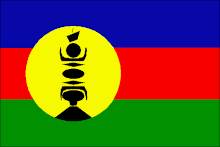Reading:
Spanish writer Jorge Luis Borges shows in his text Tlön, Uqbar, Orbis Tertius (1940) how the truth and our perceptions are manipulated to become more material under the pressure of the society. The author is mixing elements of reality and fiction which gives the text an original dimension; it makes us think about what is real and what isn’t. The story shows us the notion of manipulation that occurs and how people are ‘happily’ leaving in material world. Overall it’s about what makes the truth the truth.
Lecture:
We discussed the use of Wikipedia and its reliability because everyone and anyone can add what they want and edit the articles post on Wikipedia.
I used to use Wikipedia as a source for my assignments but since I know that the article can sometimes be edited and changed I don’t use it the same way, I still go on Wikipedia but it won’t be my only source I will have to go and check on other more reliable sites.
Tutorial task:
-There was a time when "Art" was made by artists who were skilled professionals. Now that anyone with a computer can create things digitally (music, images, videos, etc), what does that mean for "art"?
Definition of Art:
The conscious production or arrangement of sounds, colours, forms, movements, or other elements in a manner that affects the sense of beauty, specifically the production of the beautiful in a graphic or plastic medium.
Like everything Art evolve and we have to evolve with it. I don’t think that everyone and anyone could pretend to be an artist because it needs more than a program to make Art. Now there are many kinds of Art, what I mean is that you will recognise a good art form from a bad one; it has a notion of aestheticism.
If the aesthetic is not present in the work then it is not Art, so you can use as many programs as you want you wont ‘become’ an artist so I think that with computers arts evolve but the essence of Art is still there.
-Is a photoshopped image "authentic"?
Definition of Authentic:
Not false or copied; genuine; real.
By now knowing the definition, we can say that a photoshopped image isn’t an authentic image. Photoshop is a program that modifies the image, so by customising it, it removes the authenticity of the photo/image.
-Do digital "things" have an "aura" (in Benjamin's terms)?
Aura is explained in analogy with the experience of nature superseded in the experience of mechanically reproduced images/things, for which, however perfect they are as images/things, are missing the point of presence—the presence of the object—that gives it its aura. So taking Benjamin’s terms, digitals things don’t have an aura because they are missing the natural presence.
Subscribe to:
Post Comments (Atom)

No comments:
Post a Comment